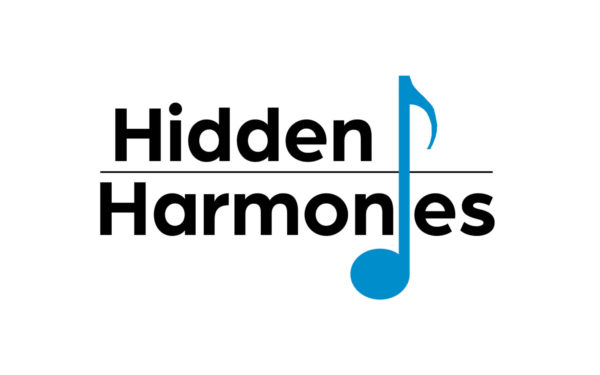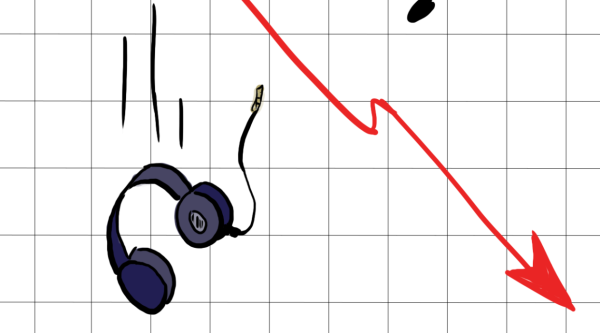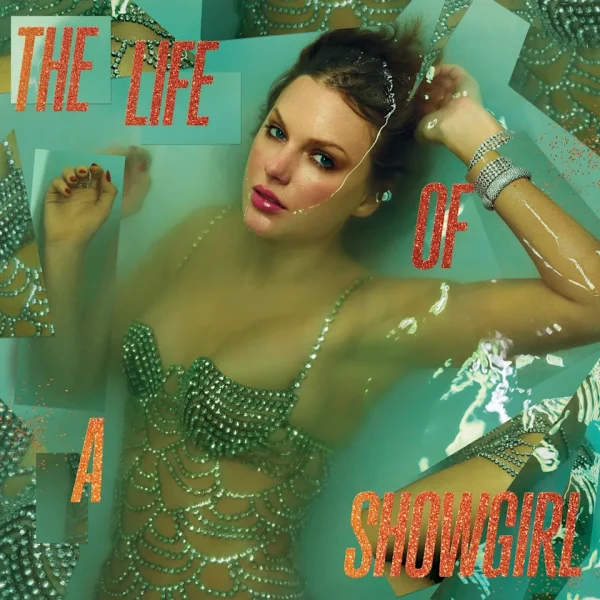“I ≠ DOLL” strikes a chord
Behind the sold-out arenas, millions of dollars in album sales and screaming fans, K-pop is a business, a business that thrives on the exploitation of beauty standards and body image insecurities.
Branded as “idols” as opposed to “celebrities,” K-pop idols are expected to maintain a picture-perfect image. However, idols, contrary to their name, are human. Released on Jan. 8, Huh Yunjin’s second single, “I ≠ DOLL,” takes on society’s expectations in a passion-filled whirlwind of emotion.
Her song introduces a refreshing take on social commentary in music, expertly crafting a narrative about the K-pop world and its stereotypes. Yunjin sings in a clear, confident voice, which pairs beautifully with her profound lyrics. The artist’s American upbringing is evident as she tackles issues commonly deemed taboo in K-pop, where public image has often taken center stage over mental health issues.
South Korea, nicknamed “the plastic surgery capital of the world,” is ripe ground for Yunjin’s criticism. Plastic surgery, as common among normal citizens as it is for celebrities, continues to grow in relevance. At the climax of K-pop’s popularity, which skyrocketed around 2018 to 2022 along with BTS and Blackpink, the plastic surgery industry reached a value of $1.95 billion. The industry feeds off the insecurities of young Korean girls and boys, raised in a culture where pale is perfect and skinny is the only way to self-acceptance.
Yunjin’s lyrics highlight this as she sings, “They pick apart my body and throw the rest away.” Day after day, scandal after scandal, the public’s opinion is ever changing, making it impossible for idols to keep up. As Yunjin laments, “How yesterday you called me a doll / And today you’re calling me a b****.”
Although the scrappy, rock-inspired beat employed in the background fails to make much of an impression on its own, Yunjin’s lyrics are the star of the show. In a song that asks its listeners to look for inner beauty rather than outer, the song serves up more philosophy than musicality.
However, it is clear the song is close to Yunjin’s heart. Original hand-drawn graphics by Yunjin herself add a personal touch to the music video, as the audience watches a cartoon avatar navigate the idol life. In an interview, Yunjin revealed that the artwork itself was a commentary: her avatar, a flat, 2D character, represents an intrinsically complex person who has been labeled in the crudest terms possible.
In the same way, idols are like this playable avatar—mannequins that fans can project their ideals onto. However, when it is revealed the mannequin is instead a human and has human imperfections, the doll is thrown away and replaced with another. As Yunjin sings in the chorus, “Idol doesn’t mean your doll to f*** with.”
Hopefully, Yunjin’s solo is only part of a growing movement in K-pop. As companies continue to loosen their hold on their artists’ creative liberties, a new genre centered around social commentary has emerged. Fourth-generation groups like (G)I-DLE continue to experiment with their newfound freedom in songs like “Nxde” and “Tomboy.”
Gone are the days of songs about school crushes and tingly feelings, replaced by the edgy, somewhat controversial lyrics of societal criticism. It is a much-needed change for an industry based on old-fashioned and harmful beauty standards. As Yunjin herself declared in her debut teaser, “I want to change the idol industry,” “I ≠ DOLL” is certainly a step in the right direction.
Your donation will support the student journalists of Hagerty High School. We are an ad-free publication, and your contribution helps us publish six issues of the BluePrint and cover our annual website hosting costs. Thank you so much!










